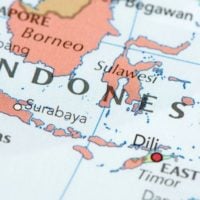Deadline: 8-Nov-23
The European Commission (EC) is offering grants to provide an improved nuclear data for the safety of energy and non-energy applications of ionising radiation under the Euratom Research and Training Programme (EURATOM).
Scope
- Nuclear data are critical inputs – and a major source of uncertainty – in predictive modelling and simulations of energy and non-energy applications. The combination of high-power computing capabilities with the availability of advanced simulation models (and related data libraries) and more accurate nuclear data measurements enable nuclear data evaluation programmes. The evaluated nuclear data libraries are a combination of:
- experimental measurements of the interactions of interest and estimation of their uncertainties and (cross-)correlations;
- the evaluation of available experimental data and the creation of evaluated nuclear data libraries (including uncertainties and covariance matrices);
- the validation of these (updated) evaluated nuclear data libraries by means of available differential and integral experimental data;
- the dissemination of these (updated) evaluated nuclear data libraries according to the standards of ‘reproducible science’ – including all the information needed to reconstruct the evaluation process.
- Beyond the needs for advanced and innovative nuclear designs and fuels, the use and needs of nuclear data for accelerator-related applications and for the production and use of isotopes (in fission, fusion, health, environmental monitoring, etc.) keeps growing.
- Proposals should:
- Demonstrate how state-of-the-art simulation, experimental and multidisciplinary approaches will be used to produce nuclear data libraries, capitalising on previous Euratom projects and on the international expert community.
- Build upon new nuclear data measurements using innovative instrumentation and detectors, reactor and accelerator‑based neutron sources, improved evaluation, validation and modelling in order to achieve the required accuracies to better assess uncertainties and correlations in their evaluation.
- Demonstrate that proposed activities will be applied to the demonstration facilities in the energy and non-energy fields, for example innovative design improvements, implementation of advanced fuel cycles, innovative light water reactors and small modular reactors, accident tolerant fuels, optimisation of radioactive waste management and geological disposal, production and use of radioisotopes (e.g. high precision nuclear data, for the major actinides present in advanced reactor fuels, to reduce uncertainties on isotopes with new relevance for applications; closing fuel cycles with minimisation of radioactive waste).
- Provide tangible contributions in the field of evaluated nuclear data, their testing and validation; develop and validate computer tools in the nuclear data pipeline; contribute to the Joint Evaluated Fission and Fusion (JEFF) evaluated nuclear data file and its production, and as such strengthen Euratom’s nuclear simulation capacities to support the identified High Priority Request List (HPRL) of the international evaluation cooperation working parties that monitor priority nuclear data needs for nuclear applications, e.g. OECD Nuclear Energy Agency Working Party on International Nuclear Data Evaluation Cooperation, JEFF and the International Atomic Energy Agency.
Funding Information
- The total indicative budget for the topic is EUR 4.00 million.
- The following exceptions apply:
- Beneficiaries may provide financial support to third parties. The maximum amount to be granted to each third party is EUR 300 000. Financial support provided by the participants to third parties, to support e.g. access to and securing availability of research infrastructures, is one of the primary activities of the action in order to be able to achieve its objectives.
Expected Outcome
Project results are expected to contribute to all of the following expected outcomes:
- Assess the state of nuclear data libraries and computer simulation tools to advise on strategic actions in order to preserve and develop Euratom capacities;
- Provide reliable nuclear data for neutron or charged particles induced reactions cross-sections, decay and structure data, and computer simulation tools for different nuclear energy and non-energy applications, mainly applied to the fields of fission and fusion safety, radiation protection, waste management, innovative nuclear systems and sustainable fuel cycles;
- Support access to key experimental infrastructures that address specific measurement capabilities and methodologies to preserve know-how in computer applications, nuclear data evaluation, validation of data and models, and to improve education & training and knowledge sharing.
Eligibility Criteria
- To be eligible for funding, applicants must be established in one of the eligible countries, i.e.:
- the Member States of the European Atomic Energy Community (Euratom), including their outermost regions;
- Austria, Belgium, Bulgaria, Croatia, Cyprus, Czechia, Denmark, Estonia, Finland, France, Germany, Greece, Hungary, Ireland, Italy, Latvia, Lithuania, Luxembourg, Malta, Netherlands, Poland, Portugal, Romania, Slovakia, Slovenia, Spain, Sweden.
- the Overseas Countries and Territories (OCTs) linked to the Member States:
- Aruba (NL), Bonaire (NL), Curação (NL), French Polynesia (FR), French Southern and Antarctic Territories (FR), Greenland (DK), New Caledonia (FR), Saba (NL), Saint Barthélemy (FR), Sint Eustatius (NL), Sint Maarten (NL), St. Pierre and Miquelon (FR), Wallis and Futuna Islands (FR).
- countries associated to the Euratom Programme: Ukraine.
- Legal entities established in Russia, Belarus, or in non-government controlled territories of Ukraine are NOT eligible to participate in any capacity. This includes participation as beneficiaries, affiliated entities, associated partners, third parties giving in-kind contribution, subcontractors or recipients of financial support to third parties (if any). Exceptions may be granted on a case-by-case basis for justified reasons.
- the Member States of the European Atomic Energy Community (Euratom), including their outermost regions;
- Specific cases:
- Affiliated entities — Affiliated entities are eligible for funding if they are established in one of the countries listed above, or in a country identified in the specific call conditions.
- Associated partners — Entities not eligible for funding (and therefore not able to participate as beneficiaries) may participate as associated partners, unless specified otherwise in the specific call conditions.
- Coordination and Support Actions – To be eligible to participate as beneficiaries (or affiliated entities) in ‘Coordination and support’ actions, legal entities must be established in a Member State or Associated Country, unless the specific call conditions provide otherwise. Legal entities established in a non-associated third country may, however, participate in ‘Coordination and support’ actions as associated partners, unless this is explicitly excluded by the specific call conditions.
- EU bodies — Legal entities created under EU law may also be eligible to receive funding, unless their basic act states otherwise.
For more information, visit European Commission.









































